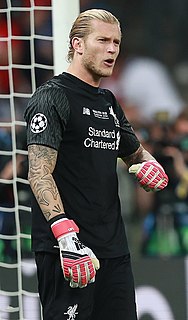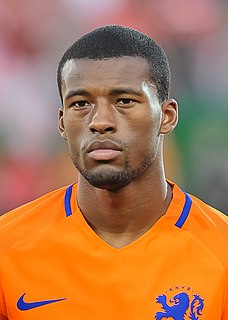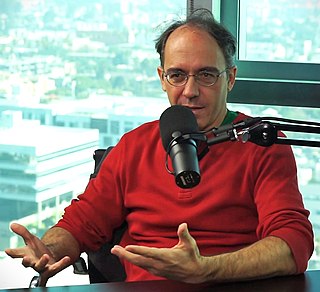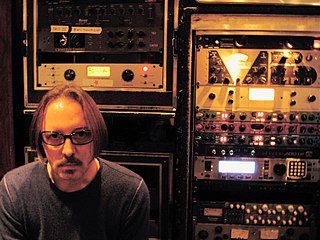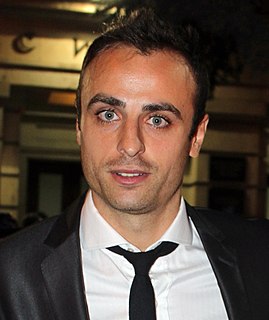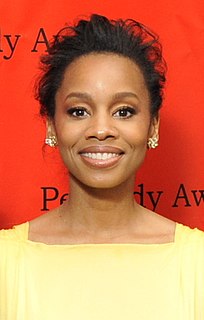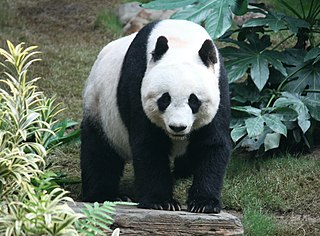A Quote by Loris Karius
When I heard Klopp wanted me, I was really excited because it felt like a huge reward after everything I'd been through, and also because I know how hard the manager works for success.
Related Quotes
He gave me a lot of confidence because he said he liked my way of playing football. He said I was a person he really wanted to have in his squad. Something like that is always good to hear. It made me happy, especially as it came from such a great trainer like Jurgen Klopp. He showed how good he is at Dortmund with all the success he had.
I'm really excited that people are receiving my performance like this. It makes me feel good, because I've been working really hard. And this character [Idi Amin], I worked particularly hard on. But I don't want to get too caught up in it, because first of all, it could lead to a great disappointment. You never know what's going to happen.
I think these are such different films that it's hard to compare, because with Quentin we were all just like, it was like a party every day, you know, it was like that film was just like silly, it was just really for fun, it was really, it wasn't, you know, to make a huge impact. I t was just we wanted to have fun and go to work every day and do a fun movie. And this is like huge, I mean, this is like huge studio film, there's a ton of action, it's like really hard work.
With any kind of physical test, I don't know what it is, I always seem to get competitive. Remember when you were in school and they'd do those hearing tests? And you'd really be listening hard, you know? I wanted to do unbelievable on the hearing test. I wanted them to come over to me after and go, 'We think you may have something close to super-hearing. What you heard was a cotton ball touching a piece of felt. We're sending the results to Washington, we'd like you to meet the President.'
Once you lose attachment to how you want things to be because you realize you don't control anything, there's a curiously liberating aspect of that. I've always been a control freak, I've always felt that if I try hard enough, everyone I love will be kept safe and everything will be okay. Being shown, in such brutal terms, that that's simply not the way it works, in someways, it messed me up. I've been through hell, but on another level, if you pile up so much tragedy, it either destroys you, or you just start laughing about it. Because at the end of the day, no one gets out alive.
I just want [my daughter Isabelle] to know that she's heard. Really heard, because I feel like that is what we all really want. When I think about any of the missteps in my life that I've made, all of which I'm grateful for, it's because I just so wanted to be truly seen and heard for who I am and was afraid I wasn't or wouldn't be. I see you, I hear you, I'm with you as you are.
The hardest stories we tell are always about ourselves. How do you explain that you have been missing your mother for 20 years? I don't know how to explain that to you. I wasn't even sure I wanted to film that, because I don't know how I felt about it. I didn't want to put her through it, and I frankly wasn't ready. Because since I was 16, I just had created my own life for myself, you know? I left when I was 12. I'm 32. And I have gotten to know my mother more through editing her and looking and watching and editing her footage, you know.
When I first had a child, I really had a hard time trying to figure out how it was all going to fit together. Because I felt like, when I was with him, I wanted to be writing and I should be writing. And when I was writing, I felt like I should be with him, and wanted to be with him. So I was unhappy a lot.
Somebody came and directed a show at my high school. I approached it with sort of the sensibility - "Oh, I know that music. I'm going to go audition." I ended up being in it and I sang and it was mind-altering - to me, to my parents, who had never heard me sing like that. It put a stop to everything else that I was doing - every sport that I played, every instrument, it was all dropped because nothing felt like that. I feel really lucky that I found my passion at that point. There are people who are adults who don't know what their passion is and go through life doing "a job."
I wrote Her First American and I always say it took me eighteen years. It took me that long was because after about five years I stopped and wrote Lucinella. I got stuck; it was too hard to write. Lucinella felt like a lark. I wanted to write about the literary circle because it amused me, and I allowed myself to do what I wanted to do. It's just one of the things I'm allowed to do if I feel like it.
After watching a couple of live performances of bands like Nirvana, I was really excited and inspired by how raw and powerful it was. I wanted to at least aim in that direction with the guitar and do my own version of it. I know it doesn't really sound like that on the other end, but I wanted guitar, heavy rhythms, and singing to be the stamp of the whole thing.
